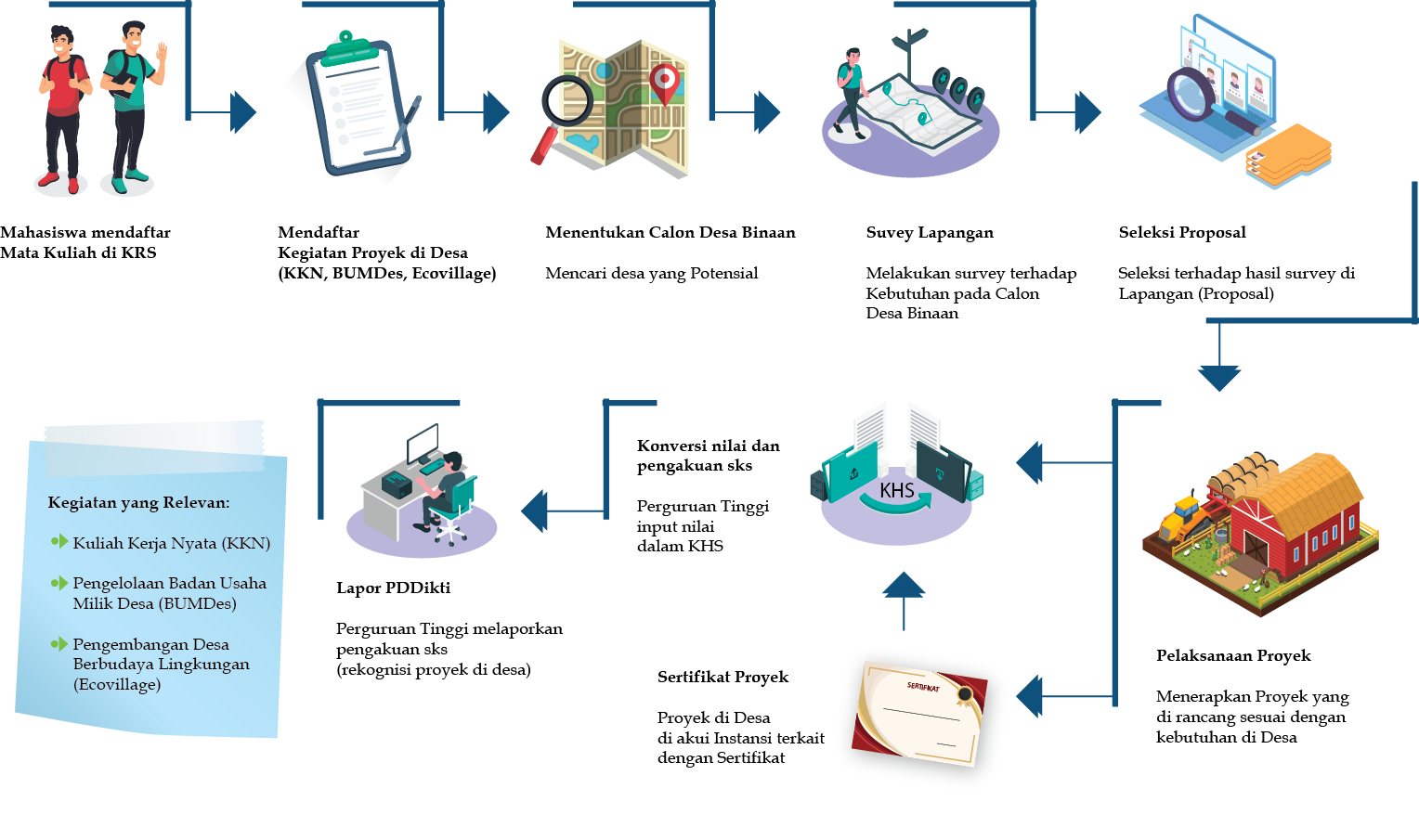Introduction
Student exchange aims to establish excellent students’ mannerism as stipulated in Permendikbud No 3 of 2020, regarding cultural diversity appreciation, point of view, religion, and belief, as well as opinion or original findings; establishing collaboration and building a social sensitivity as well as awareness on the community and environment condition.
Objective
- • Cross-university learning (regional and international), staying with a family in the destination university, students’ understanding of Bhinneka Tunggal Ika will be more developed, strengthening cross-cultural friendship.
• Building a students’ friendship across regions, ethnicities, cultures, and religions, thus improving the spirit of national unity and integrity.
• Implementing knowledge transfer to close the education disparity among the state universities and the disparity between international and regional higher education institutions.
Implementation Stages
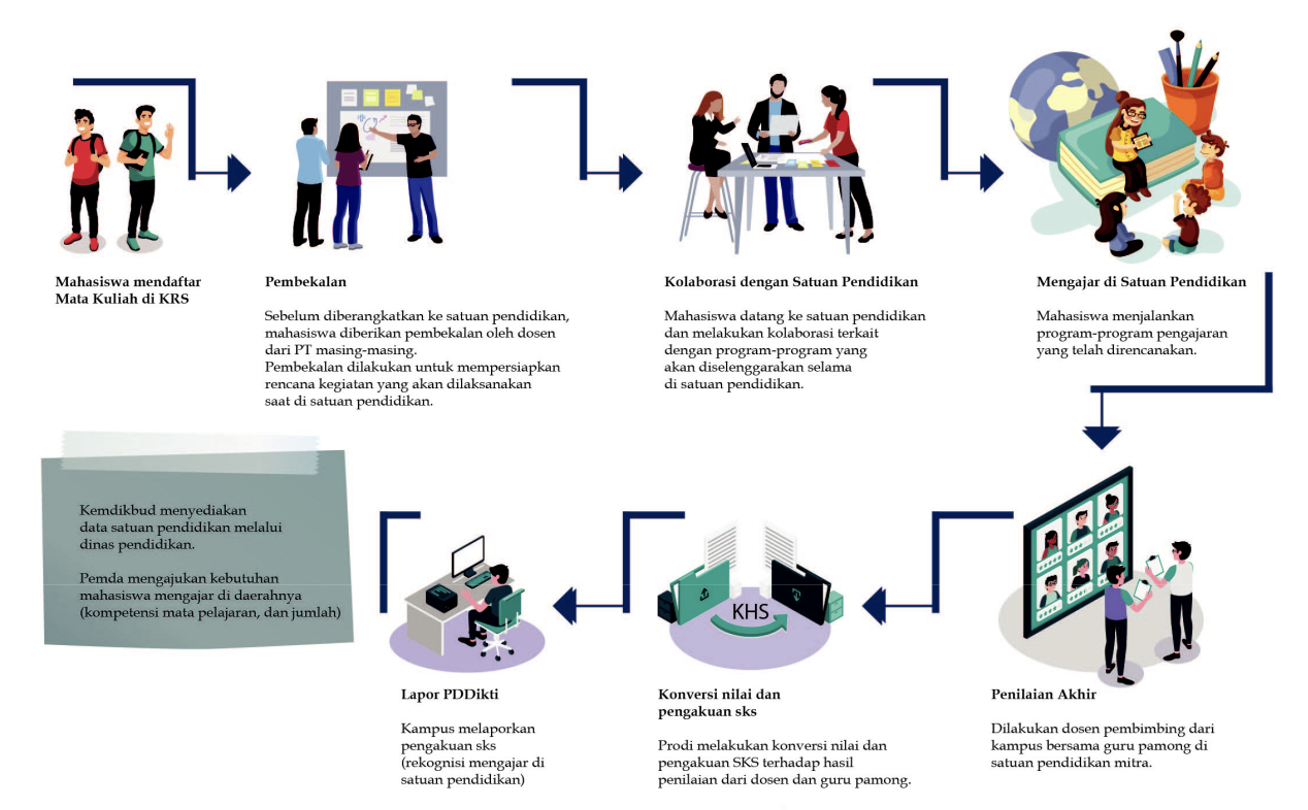
Introduction
The current short-term internship (less than 6 months) has not provided sufficient industrial experience and competency to the students. Firms that are providing internship programs also consider short-term internship is less favorable, even interfering with business activities.
Objective
One semester internship program (can also be taken for 2 semesters) will give the appropriate amount of experience to students through direct learning (experiential learning). During the internship program, students will receive various hard-skill (specific skills, complex problem solving, analytical skills, etc.), as well as soft skills (profession/work ethics, communication, collaboration, etc.). Students who understand the workplace environment will be more confident in entering the job market and establishing their careers.
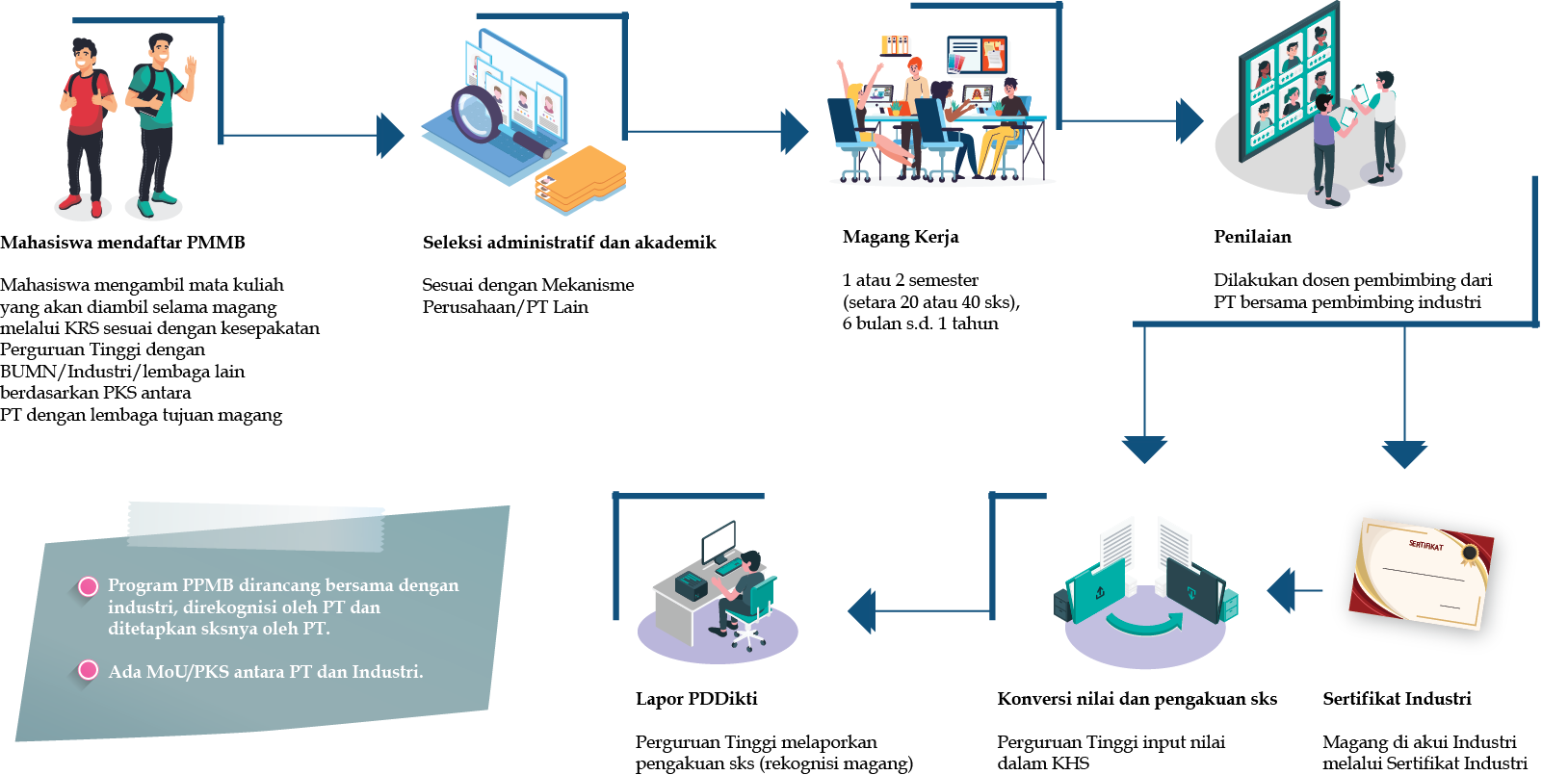
Introduction
The quality of primary education in Indonesia is quite low (PISA 2018, Indonesia is ranked 7th from the lowest position). The substantial number of education units in Indonesia have their unique challenges. Teaching and learning activity in the form of study assistance is conducted by university students at elementary school units or middle and high school. The activities are conducted in the school located in a rural or remote region.
Objective
- • Providing opportunities to students who are interested in the education sector to take place in transferring their knowledge and deepen their understanding.
• Assisting the efforts to equalize the education quality, and synchronizing the primary and secondary education to the current advancement.
Implementation Stages

Introduction
For students who are interested to be researchers, the Merdeka Belajar program can be an opportunity for them to take an internship in a research center laboratory. Through research, students can establish their critical thinking, thus helping them to explore, understand, and be better in implementing research methods.
Objective
-
Increasing student research quality and strengthening researchers’ talent pool based on their research interest.
-
Student can establish their research competency under direct supervision from a research center/institution.
-
Improving the ecosystem and research quality in Indonesian laboratory and research institution, by providing human resources and early regeneration.
Implementation Stages
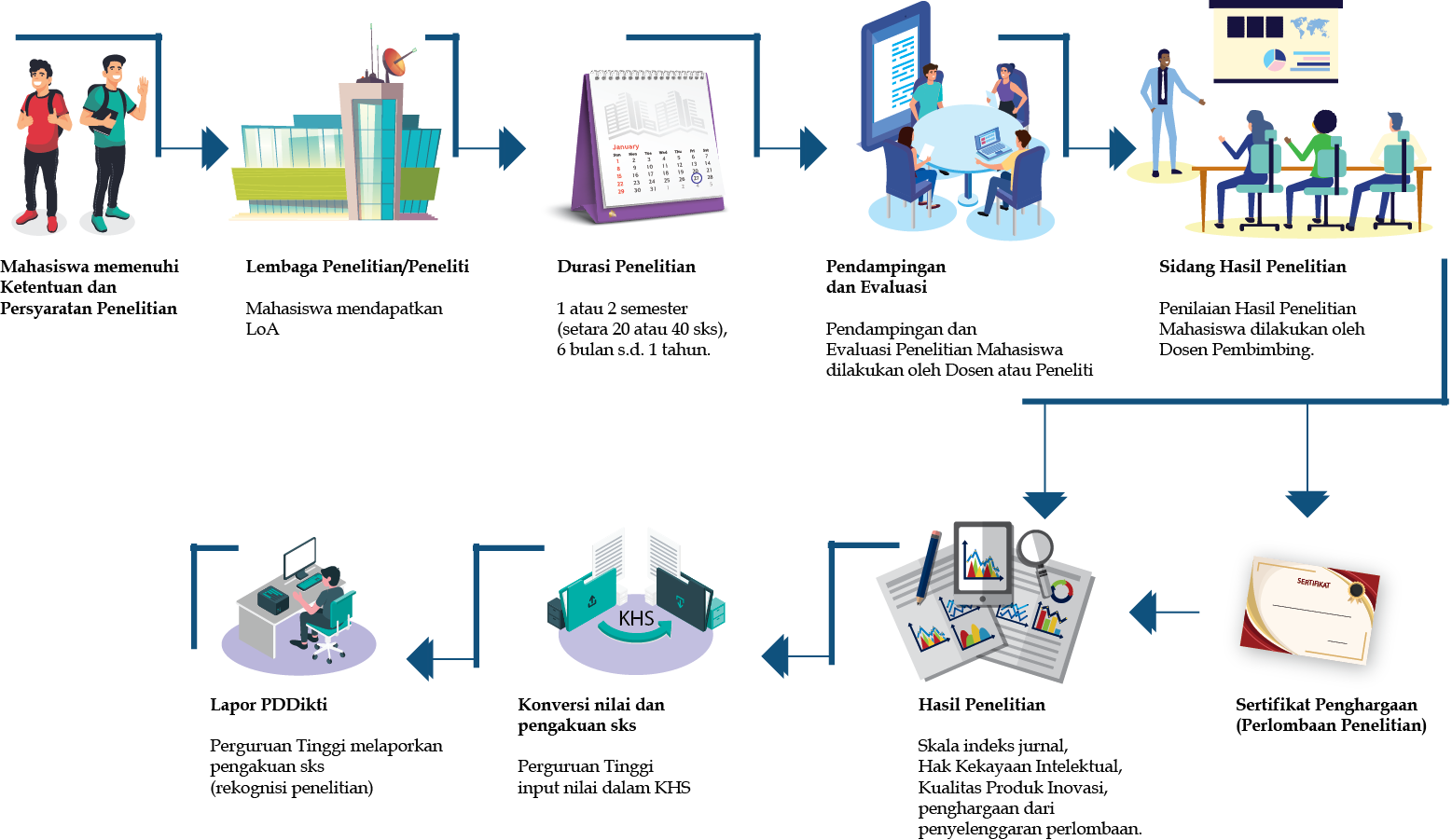
Introduction
Indonesia is a country that often faces various natural disasters such as earthquakes, volcano eruptions, tsunami, hydrology disasters, and many others. Higher education institutions have been assisting with social programs. However, students’ involvement in the program is limited, lasted for a short period, and voluntary. This program allows the university to prepare their excellent students, who are upholding humanity in conducting their duty, based on religion, morals, and ethics; training students’ social sensitivity to explore the existing problems and delivering solutions based on their talent.
Objective
-
Establish excellent students, who are upholding humanity in conducting their duty, based on religion, morals, and ethics.
-
Training students’ social sensitivity to explore the existing problems and delivering solutions based on their talent
Implementation Stages
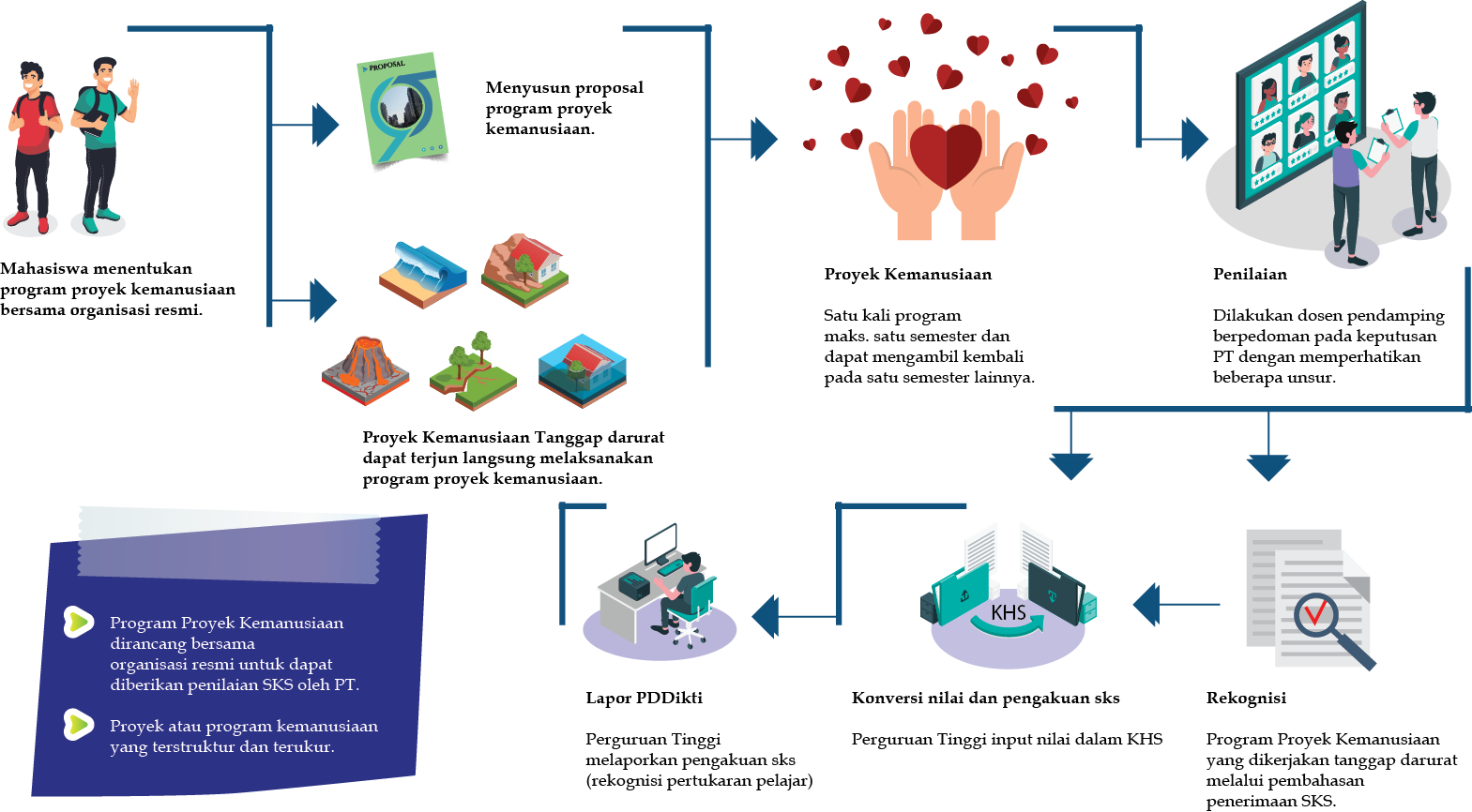
Introduction
According to Global Entrepreneurship Index (GEI) in 2018, Indonesia only gets 21% of the entrepreneurship score in various fields of works, or ranked 94th from the total of 137 surveyed countries. Meanwhile, according to IDN Research Institute in 2019, 69.1% of millennials in Indonesia are interested in entrepreneurship. However, this potential has not been properly managed. The Kampus Merdeka Policy will encourage students’ entrepreneurial spirit, through suitable learning activities.
Objective
-
Providing opportunities to students with the entrepreneurial spirit to develop their business early under appropriate supervision.
-
Resolving unemployment problem due to intellectual unemployment.
Implementation Stages
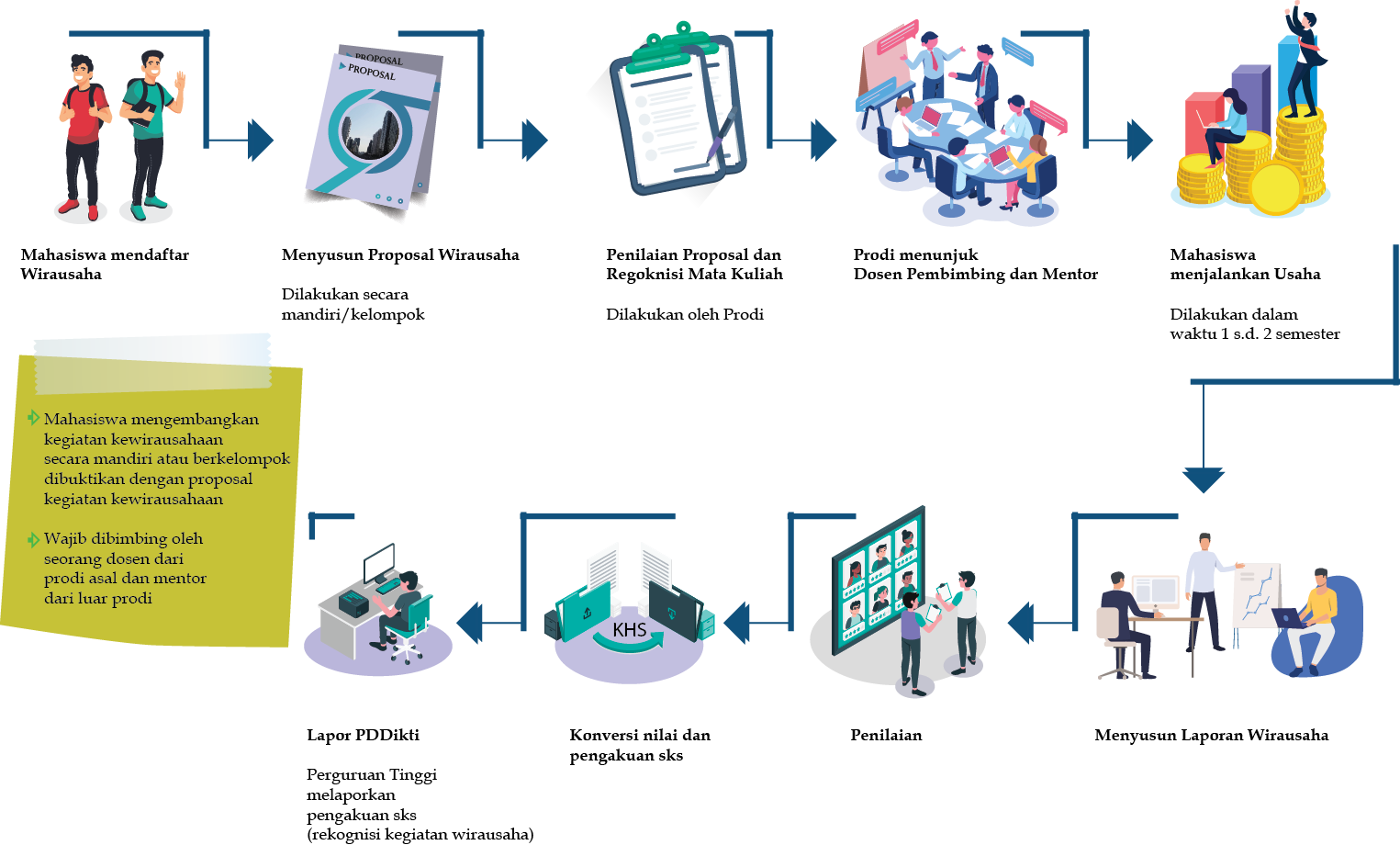
Introduction
Many students have the passion to implement their excellent idea or innovative products for international competition. To accommodate this, an independent study/project is established as complementary material aside from the curriculum completed by the students. This program can also act a supplementary material for any topic that does not include in the semester schedule but remain available in the study program/faculty syllabus.
Objective
-
Implementing students’ ideas to develop an innovative product.
-
Delivering research and development (R&D) based education.
-
Improving students’ achievement at the national and international level.
Implementation Stages
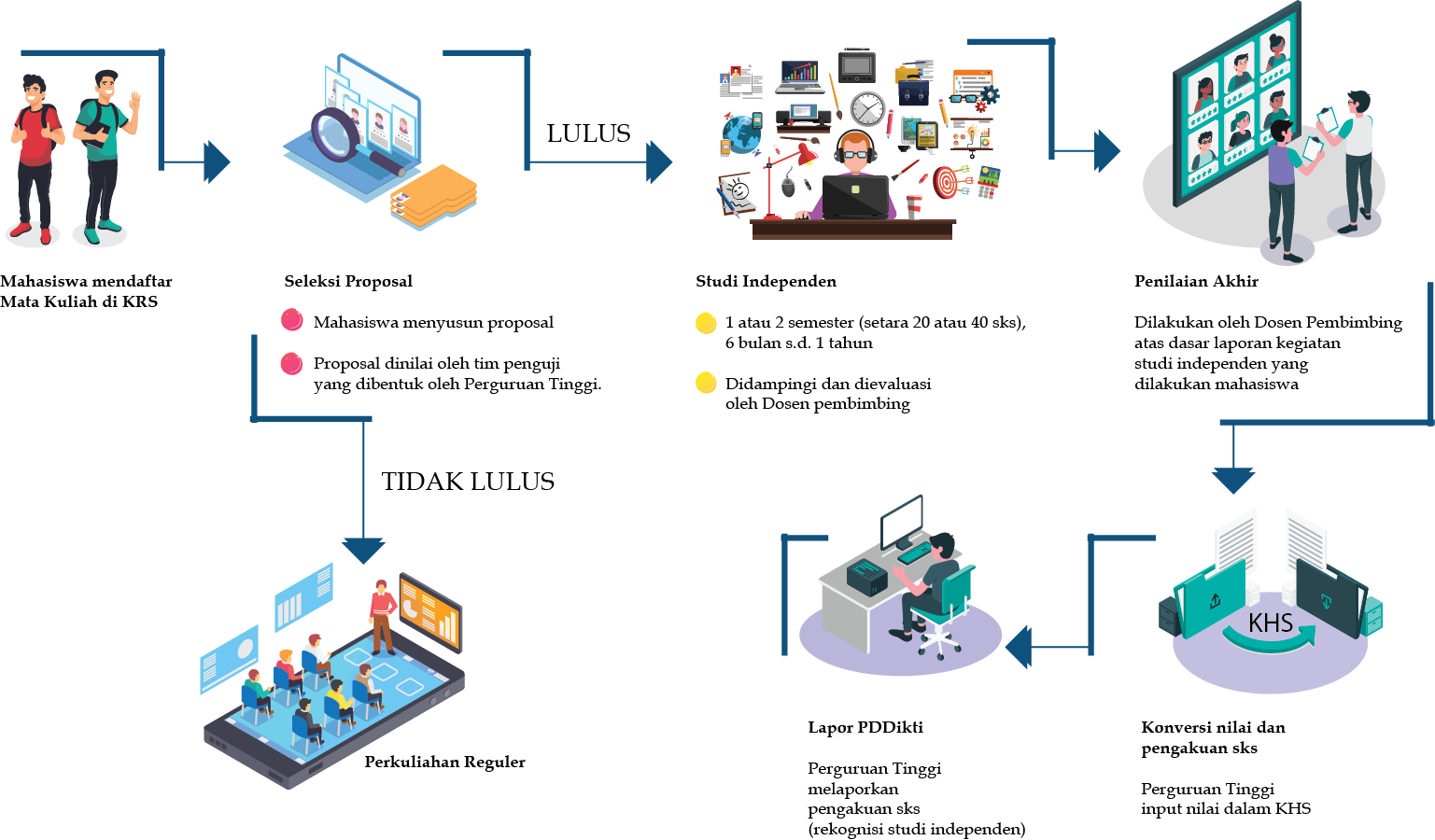
Introduction
Thematic Student Community Service Program (KKNT) is an education method, where students are given the experience to live in a community outside of the campus while identifying the potential and challenges alongside the target community, proposing a solution to the regional challenge, and developing the village/local potential.
Objective
-
Providing an opportunity to students to implement their knowledge, technology, and skills to collaborate with the stakeholders in the target community, for 6-12 months.
-
Assisting the development acceleration in a rural area in collaboration with the Ministry of Rural Development and PDTT.
Implementation Stages
